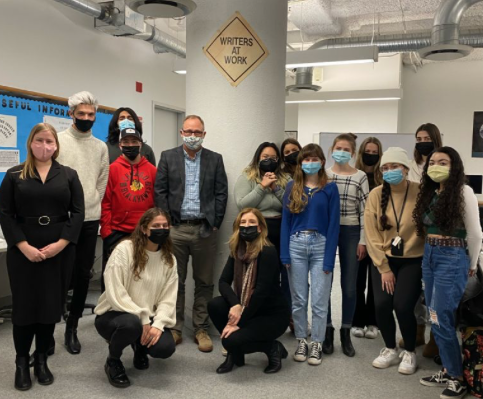I used to tease my old pal Tony Judge over an encounter a few years ago on a golf course. We were paired with a couple of perfectly nice young bros who wore Boston Red Sox caps. Tony, originally from Massachusetts, took it upon himself to deliver unsolicited lecture to the boys on the theme of, “If You Didn’t See the 1967 Red Sox, You’ve Never Seen Baseball.” And he prefaced his remarks with the self-canceling phrase, “Now look, fellas, I don’t want to sound like an old gaffer here …”
Used to tease him—before I found myself in front of a class of 20-year-old Columbia College undergraduate journalists and PR majors last week, and heard myself telling them over and over and over again how things were in the speechwriting and the corporate communication business “30 years ago.”
It’s not as bad as it sounds: I wasn’t mostly telling them that life was better in the business 30 years ago; more often, I was telling them it’s better now.
My motives were mostly pure, for referring to corporate life 30 years ago: To give them a sense of the long-term direction of things, to tell them that things do change dramatically over time, and that other things stay amazingly the same. I know, because I’ve been around for 30 years.
And yet, every time I said “30 years ago,” I saw the bright eyes peering over those masks dim a little bit.

Why? Because imagine I was teaching this class in 1922, and I was referring to things “30 years ago.” That would be 1892.
That is precisely what I was doing to them, here in 2022.
Here are kids faced with the terrifying task of trying to make decent livelihoods for themselves in the post-COVID, post-George Floyd, post-Trump era.
How many times did they want to hear about what things were like in 1992?
About one time, I’d say.
One time would have told them how deep and long is my witness. I could have drawn on that experience, stood on the shoulders of all those years, worn the gravitas of those decades, without making reference to phone books, Rolodexes and dial-up modems.
I heard a guy on Twitter the other day talking about what a bad president Jimmy Carter was. I was about to engage the debate when I asked myself: Would I like to be seen by anyone, fiercely defending Chester A. Arthur against a Grover Cleveland devotee, unless I was a paid presidential historian? Cuz that’s what donnybrooks about Jimmy Carter and Ronald Reagan come off like, to most living Americans—and almost all of the American population who I want to be communicating with.
It’s important to know your history; it’s more important to know your audience.
One last motive for my repeated referencing of 30 years ago was absolutely pure: To express to those young adults my own astonishment that it has been that long since I was their age, because I feel their age so often right now—and so close to the center of my soul.
I did tell them, as a piece of closing advice, that I still feel entirely accountable to the college undergrad I once was. When I disappoint that kid, I embarrass myself. And to the extent I impress that kid, I have reason to be proud of my life.
And that is why I enjoy talking with college students. It’s like talking to the youngest, most open-hearted version of myself, and seeing how I sound.
And I generally like the way I sound: genuinely enthusiastic, broadly hopeful, candid and sometimes even funny.
Thirty years ago, guest lecturers always seemed to be talking down to us …
“Would I like to be seen by anyone, fiercely defending Chester A. Arthur against a Grover Cleveland devotee, unless I was a paid presidential historian?”
I sure wouldn’t! So funny, and so true.
As always, only wise words from David. Love reading your reflections. I’m sure those students really enjoyed hearing you speak. Excellent point about the importance of knowing your audience. Great timeless wisdom for the students and us seasoned pros.